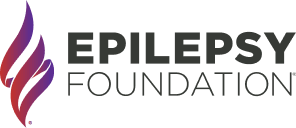Commercial Truck Driver and Epilepsy
The U.S. Department of Transportation (DOT) regulations bar people with a diagnosis of epilepsy or medical history of seizures from driving trucks in interstate commerce (Title 49 of the Code of Federal Regulations Part 391 "Federal Carrier Safety Regulations"). DOT interprets this regulation to permanently disqualify people with epilepsy regardless of present ability to control seizures. The regulations only cover truckers who cross state lines as part of their job and those who transport products within a state that originated in another state. Find information from DOT's Federal Motor Carrier Safety Administration on its commercial driver's license program.
To date, legal challenges to the federal DOT regulations have been unsuccessful. However, some plaintiffs have brought successful cases challenging state commercial driver licensing requirements and employers' use of the DOT regulations in circumstances where they are not required. For more information, see the DOT regulations below.
Note: Your physician does determine if you can drive with a commercial driver's license (CDL).
Federal Department of Transportation Regulations
The U.S. Department of Transportation (DOT) has regulations which bar persons with a diagnosis of epilepsy from driving trucks in interstate commerce. DOT interprets this regulation to permanently disqualify anyone with an established medical history or diagnosis of epilepsy regardless of present ability to control seizures.
Concern About Impact
Concern over the impact of these regulations has increased. The DOT regulations cover truckers who cross state lines as part of their job as well as those drivers who transport products within a state which have originated in another state. In addition, many states are now applying federal DOT medical requirements to intrastate commercial driving, especially for drivers operating commercial vehicles over 26,000 pounds, hauling hazardous material, or transporting more than 15 passengers. For information on state commercial rules you should check directly with the state DOT.
Study Shelved
DOT had been planning to institute a study of truck drivers with epilepsy in order to determine what profile of driver with epilepsy may be safely licensed. However, their similar study of vision-impaired individuals was derailed by a recent court decision, so they have decided not to do the study. What action DOT currently plans in this area has not been decided.
In April 1988, the Department of Transportation convened a conference of neurologists, industry experts and others to review its regulations on commercial truck driving and neurological conditions. The Task Force recommended that persons who have been seizure free for ten years off medication be allowed to get federal DOT licenses.
The Epilepsy Foundation's Position
Due to the varied nature of epilepsy, the Epilepsy Foundation opposes arbitrary, across-the-board requirements which treat all instances of epilepsy alike.The Foundation endorses individualized assessments which take into account the specific features and circumstances of a person's condition.
Thus far, legal challenges to the federal DOT regulations have been unsuccessful. However, some plaintiffs have brought successful cases challenging state commercial driver licensing decisions. In addition, some plaintiffs have successfully challenged their employer's use of the DOT regulations in certain circumstances where they are not required.
Resources
Epilepsy Centers
Epilepsy centers provide you with a team of specialists to help you diagnose your epilepsy and explore treatment options.
Epilepsy Medication
Find in-depth information on anti-seizure medications so you know what to ask your doctor.
Epilepsy and Seizures 24/7 Helpline
Call our Epilepsy and Seizures 24/7 Helpline and talk with an epilepsy information specialist or submit a question online.
Tools & Resources
Get information, tips, and more to help you manage your epilepsy.


